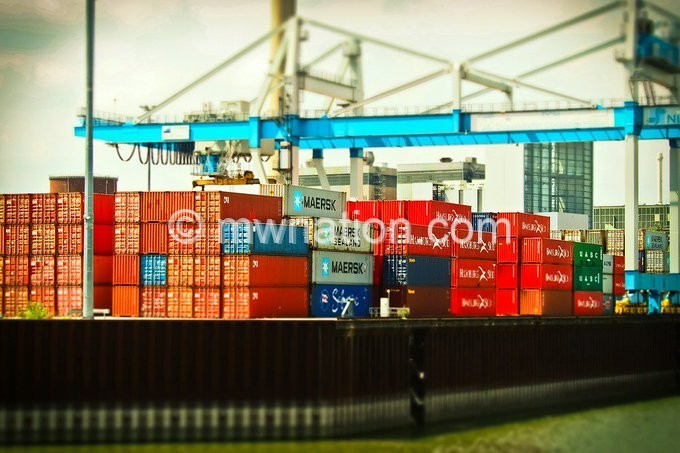Trade balance to widen in 2019
Trade balance to widen in 2019
Malawi’s trade balance—the difference between the value of a country’s imports and its exports— is projected to worsen by 16.4 percent this year, figures from the latest Annual Economic Report show.
This is in contrast to an improved trade balance which the country recorded last year to $1.42 billion (about K1 trillion) from $1.31 billion (about K 970 billion).

In the 2019 Annual Economic Report government said the projected trade balance is due to the fact that all values of traditional export products are anticipated to go down in 2019.
Tobacco, for instance, is projected to rake in $502 million down from $516 million while earnings from sugar, cotton, coffee and edible nuts are also estimated to fall in the year.
On the other hand, it is anticipated that Malawi’s imports will increase by 4.9 percent on account of a forecasted increase in the country’s main import products.
“Petrol and petrol products that are estimated to go up by 4 percent, while fertiliser imports are expected to increase by 5 percent. But the rise in imports volumes of main imports products have been subdued by stable prices,” reads the report in part.
Malawi’s trade balance has been widening over the years despite various policy interventions to narrow the trade deficit-a negative balance of trade in which a country’s imports exceed its exports.
Among some strategies and efforts, government has been implementing programmes in key areas in support of trade, industry.
Chancellor College economic professor Ben Kaluwa said unless Malawi produce and trade in goods that have gone through value addition, it will be difficult to reduce the trade deficit.
“In the absence of significant value-adding activities, Malawi will invariable continue to be reduced to a net exporter of jobs to the rest of the world.
“As you are aware, to a larger extent, Malawi is import dependent and, therefore, due to the balance of payments deficit, subject to high input costs rendering our products uncompetitive on the international market,” he said.
Ministry of Industry, Trade and Tourism spokesperson Mayeso Msokera is also on record having said the ministry will continue to implement policies and strategies to narrow the trade gap, among others, by reviewing the Malawi National Export Strategy I and the design of a successor strategy, the National Export Strategy II, which will run from 2019 to 2023.
He said the main focus is to build the export readiness of Malawian exporters and develop regional and global value chains, promoting entrepreneurship with emphasis on micro, small and medium enterprises and women and youth entrepreneurs as well as addressing critical enablers and cross-cutting issues related to exports such as energy, transport, market intelligence and trade facilitation. n





